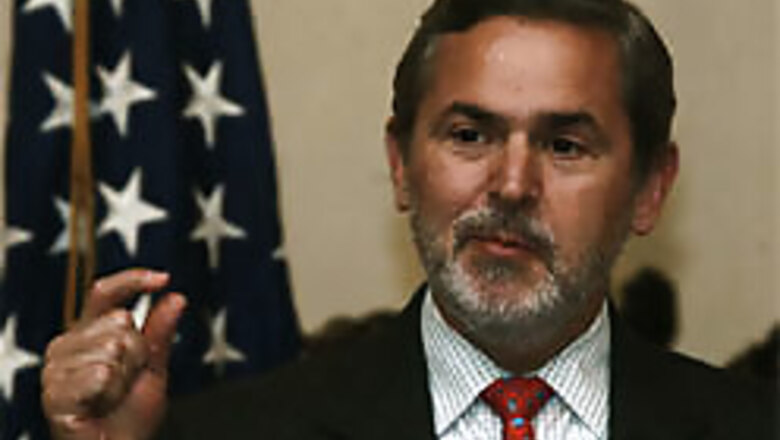
views
Washington: Describing the Indo-US civilian nuclear agreement as "unique" which cannot be replicated elsewhere as a model, the Bush administration has made it clear that Pakistan cannot be the beneficiary of a similar deal and no such cooperation with Islamabad is on the table.
"The agreement we have with India is unique to India, not a model for anything else," Assistant Secretary of State for South and Central Asian Affairs, Richard Boucher, said at a recent Round Table on Pakistan
The nuclear cooperation with Pakistan is "just not on the table," he said, according to a transcript released by the State Department.
Boucher's remarks came against the backdrop of repeated statements by the Pakistani leadership seeking a nuclear agreement on the lines of the Indo-US deal.
"We are absolutely committed to working with Pakistanon Pakistan's energy needs. And indeed during the strategic partnership meeting we had with the Foreign Minister and others who were here, we talked about Pakistan's energy
needs. We talked about how to improve the cooperation. And Pakistan's energy problems are also balanced by Pakistan's energy potential," Boucher said.
Speaking about Pakistan's energy potential, the senior Bush Administration official said "a lot of that is in coal, particularly clean coal; a lot of it's in hydro power, in some of the mountainous areas of the country; a lot of it's in
alternate energy wind farms and other things down by the Macram coast."
"So in the end we're going to help Pakistan, work with Pakistan on Pakistan's energy potential which has a uniquely Pakistani character. That's where we really need to reinforce our efforts. And we heard very strongly from the Pakistan side they want us to do more. We told them we agreed. We'd try to step up our cooperation," Boucher said.
When asked about nuclear cooperation with Pakistan, he\ said "it's just not on the table."
"But as I said, the goal is to help Pakistan with its energy needs. When a kid turns on the light bulb to do his homework he doesn't really care if the light comes from coal, hydro, nuclear or whatever.
"He cares that the light bulb goes on. We want to help turn the lights on for kids to do their homework," Boucher said agreeing with the notion that there is indeed a "very serious" energy crisis in Pakistan.
"Absolutely. I think there's a developing programme by the government to address those energy needs. But yeah, there's a lot to do, and unfortunately a lot of the energy investments take time so it's hard to immediately satisfy the needs for energy that are appearing now," he said.




















Comments
0 comment